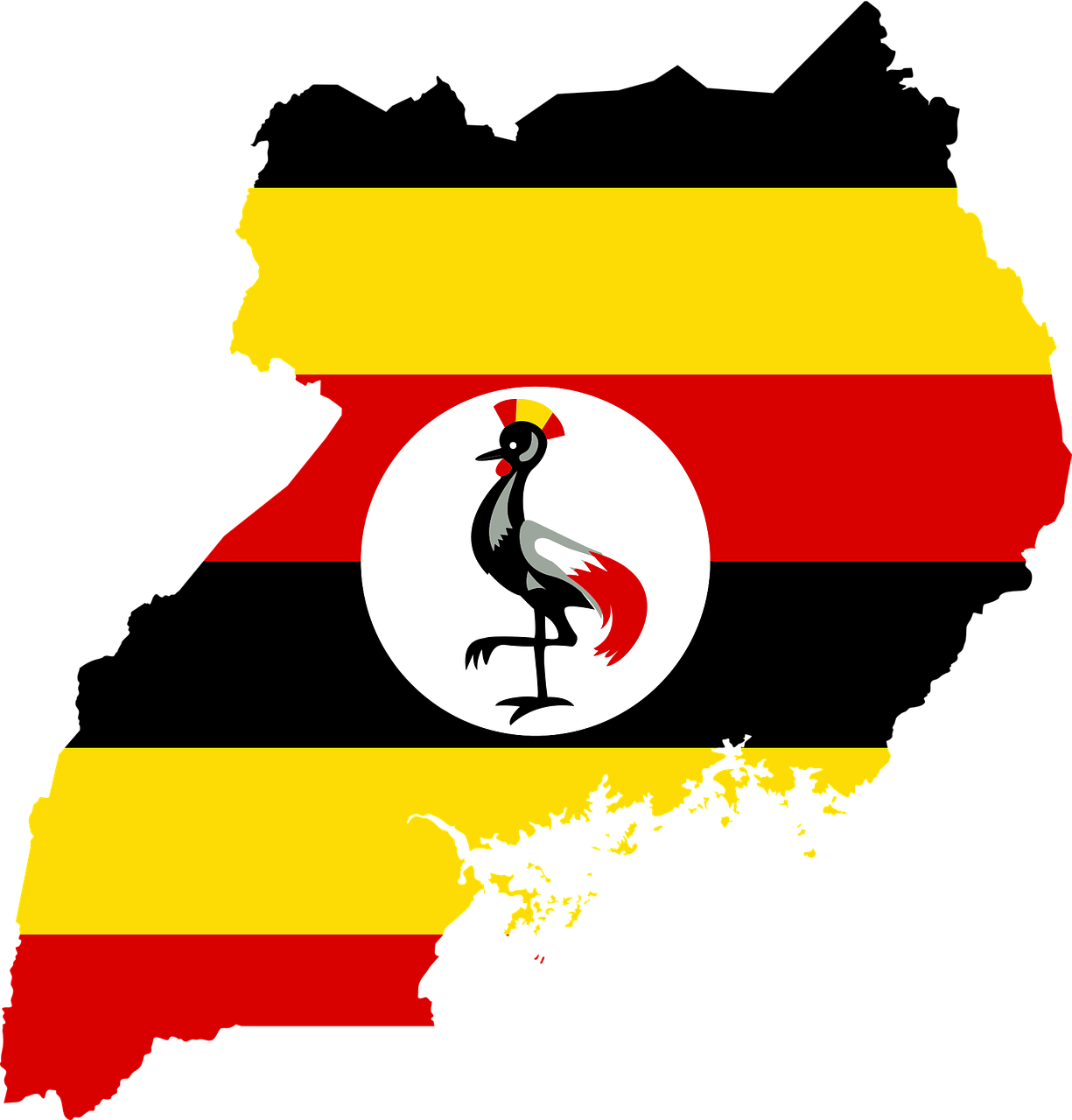Uganda
Overview
Uganda, the "Pearl of Africa"
Uganda, fondly referred to as the "Pearl of Africa," is a nation that radiates natural beauty, cultural richness, and immense potential. Nestled in the heart of East Africa, it is characterized by its lush landscapes, ranging from the snow-capped Rwenzori Mountains to the vast expanse of Lake Victoria, the world's second-largest freshwater lake. The country is also home to the source of the Nile, the world's longest river, which begins its majestic journey from Jinja in Uganda.
Kampala, the capital, is a vibrant city that reflects Uganda's dynamism, growth, and multicultural heritage. It's a city where modernity meets tradition, where skyscrapers and shopping malls coexist with bustling markets and historical sites. Beyond Kampala, cities like Entebbe, with its scenic lake views, and Gulu, a symbol of resilience and post-conflict transformation, each tell a unique story of Uganda's journey.

Key indicators

Population

GDP per capita

Nominal GDP

Purchasing Power Parity GDP

Main exports

Foreign direct investment

Stock market capitalization

GDP growth rate
- Economic Snapshot
- Business Environment
- Startup Ecosystem
- Infrastructure & Technology
- Opportunities & Challenges
- Cultural Insights
Uganda's economy, rooted in agriculture, has shown remarkable diversification and growth over the past few decades. The fertile soils and favorable climate have made it a significant producer of coffee, tea, maize, and bananas. But Uganda's economic narrative extends beyond agriculture. The discovery of oil in the Albertine Rift has positioned it as a future oil producer, with potential to transform its economic landscape.
Tourism is another vital pillar of Uganda's economy. The country's national parks, such as Bwindi Impenetrable Forest, Queen Elizabeth, and Murchison Falls, are globally renowned for their biodiversity, especially the mountain gorillas, which draw wildlife enthusiasts from around the world. The rich cultural heritage, with over 50 ethnic groups, each with its unique traditions, dances, and folklore, adds another dimension to Uganda's tourism offerings.
Tourism has traditionally been a significant contributor to Tunisia's economy. From the ancient ruins of Carthage to the Mediterranean beaches, from the desert landscapes made famous by the "Star Wars" movies to the historic medinas of Tunis and Sousse, Tunisia offers a diverse range of attractions. The nation's commitment to sustainable and cultural tourism is evident in its preservation efforts and the promotion of eco-tourism initiatives.
Tourism is another pillar of Tanzania's economy. The nation's national parks, such as the Serengeti, Selous, and Tarangire, are world-renowned, drawing wildlife enthusiasts and adventure seekers from across the globe. The annual Great Migration, where millions of wildebeest and zebras traverse the Serengeti plains, is one of nature's most spectacular events. Add to this the cultural tourism of Zanzibar, the historical sites like the Olduvai Gorge, and the adventure tourism of Mount Kilimanjaro, and it's evident why Tanzania is a preferred destination for many.
Uganda offers a conducive environment for business and investment. Over the years, the government has undertaken reforms to improve the business climate, attract foreign investment, and promote local industries. The Uganda Investment Authority serves as a one-stop center for investors, facilitating business registration, land allocation, and other essential services. The nation's strategic location in the East African region, coupled with its membership in the East African Community (EAC), enhances its trade and investment potential.
Uganda's labor force is young, dynamic, and increasingly skilled. The emphasis on education, vocational training, and skills development has resulted in a pool of professionals ready to drive the nation's economic aspirations. The entrepreneurial spirit is evident in the bustling markets of Kampala, the tech startups emerging in the city, and the innovations in the agricultural sector.
The nation's workforce is one of its key assets. With a strong emphasis on education and skills development, Tunisia boasts a pool of skilled professionals, especially in sectors like information technology, engineering, and finance. The country's legal and regulatory framework, influenced by both civil law traditions and Islamic law, provides stability and protection for businesses and investors.
The nation's strategic location, with its access to landlocked countries in the region, enhances its trade potential. The port of Dar es Salaam, one of the largest in the region, is a gateway to East and Central Africa. Furthermore, Tanzania's membership in regional bodies like the East African Community (EAC) and the Southern African Development Community (SADC) offers it access to a larger market and collaborative opportunities.
Uganda's startup ecosystem is burgeoning. Kampala, in particular, has become a hub of innovation and entrepreneurial activity. The growth of tech hubs, incubators, and accelerators is a testament to the nation's focus on fostering a startup culture. From agritech solutions that aim to enhance agricultural productivity to fintech innovations that seek to promote financial inclusion, Ugandan startups are making a mark.
Collaboration is at the heart of this ecosystem. Universities, the private sector, and the government are coming together to foster a culture of innovation, research, and development. Access to funding, while a challenge in the past, is improving, with both local and international investors showing interest in the Ugandan startup scene.
Incubators, accelerators, and co-working spaces are playing a pivotal role in nurturing the startup culture. Collaboration between academia, industry, and government is fostering innovation, research, and development. Access to funding, while a challenge in the past, is improving, with venture capitalists and angel investors showing interest in Tunisian startups.
Collaboration is at the heart of this ecosystem. Universities, the private sector, and the government are coming together to foster a culture of innovation. Access to funding, mentorship programs, and market linkages are ensuring that startups not only take root but also thrive and scale.
Infrastructure development is a priority for Uganda. Roads, railways, and energy projects have seen significant investments in recent years. The government's focus on enhancing digital infrastructure is evident in its push for greater internet connectivity, digital literacy, and e-governance initiatives. Mobile money platforms have revolutionized banking in Uganda, offering financial services to those who were previously unbanked.
Uganda is also focusing on sustainable energy solutions. With abundant sunlight and numerous rivers, solar and hydropower projects are gaining momentum. These initiatives underscore Uganda's commitment to sustainable development and its vision for a future powered by clean and renewable energy sources.
Uganda, with its strategic location, abundant resources, and youthful population, offers a plethora of opportunities. Sectors like agriculture, tourism, information technology, and energy are particularly promising. The government's focus on industrialization, value addition, and export promotion presents numerous avenues for collaboration and investment.
However, challenges persist. Land ownership issues, bureaucratic hurdles, and the need for further infrastructural development are areas that need attention. But with challenges come opportunities. Uganda's resilience, coupled with its vision for the future, makes it a compelling destination for investors and entrepreneurs.
However, challenges persist. Political transitions and economic reforms, while necessary, have brought about uncertainties. Addressing issues related to bureaucracy, transparency, and governance remains a priority. But with challenges come opportunities. Tunisia's resilience, coupled with its vision for the future, makes it a compelling destination for investors and entrepreneurs.
However, challenges remain. Land ownership issues, bureaucratic hurdles, and infrastructural gaps need to be addressed. But with challenges come opportunities. The nation's youth, with their energy, talent, and aspirations, are its biggest asset, driving change and innovation.
-
Uganda is a multicultural country with a rich history and heritage. The country is home to over 50 ethnic groups, each with its own unique culture and traditions. The most populous ethnic groups in Uganda are the Baganda, the Bakiga, and the Banyankore.
-
Ugandans are generally friendly and welcoming. They are also known for their strong sense of community and family.
-
Some of the most important cultural traditions in Uganda include:
-
Greetings: It is customary to greet people with a handshake and a greeting in their language. The most common greetings are "Jambo" (Luganda) and "Muli mwete?" (Luganda).
-
Hospitality: Ugandans are known for their hospitality. They often invite guests into their homes and offer them food and drinks. It is considered rude to refuse a Ugandan's hospitality.
-
Dressing: Ugandans dress in a variety of styles, depending on the occasion. However, it is important to dress respectfully when visiting Uganda. This means avoiding revealing clothing and dressing appropriately for the occasion.
-
Food: Ugandan food is delicious and diverse. Some of the most popular dishes include:
- Matooke: A starchy staple food made from green bananas.
- Luwombo: A steamed stew made with chicken, beef, or fish.
- Mpogo ngema: A fried chicken dish.
- Rolled matoke: A snack made from rolled green bananas and filled with ground beef, fish, or vegetables.
-
Music and dance: Uganda has a vibrant music and dance culture. Some of the most popular Ugandan musical genres include Afrobeat, reggae, and dancehall. Traditional Ugandan dance is characterized by its energetic and graceful movements.
-
Here are some tips for businesses and investors operating in Uganda:
- Be respectful of Ugandan culture and traditions. This includes being respectful of traditional customs and beliefs.
- Be patient and understanding. Ugandans are generally relaxed and easy-going. It is important to be patient and understanding when doing business in Uganda.
- Build relationships. Ugandans value personal relationships in business. It is important to build rapport with your Ugandan counterparts before getting down to business.
- Be ethical and responsible. Ugandans are looking for businesses that are ethical and responsible in their dealings.

Investment Landscape & Opportunities in Uganda
- Start-up & SME Investments
- Impact & Green Investments
- Government Bonds & Stock Market
- Public-Private Partnerships
- Foreign Direct Investments
- Commodities & Infrastructure Investments
- Real Estate Development
- Cultural and Creative Industries

Leading
startups in Uganda
Comming up soon

